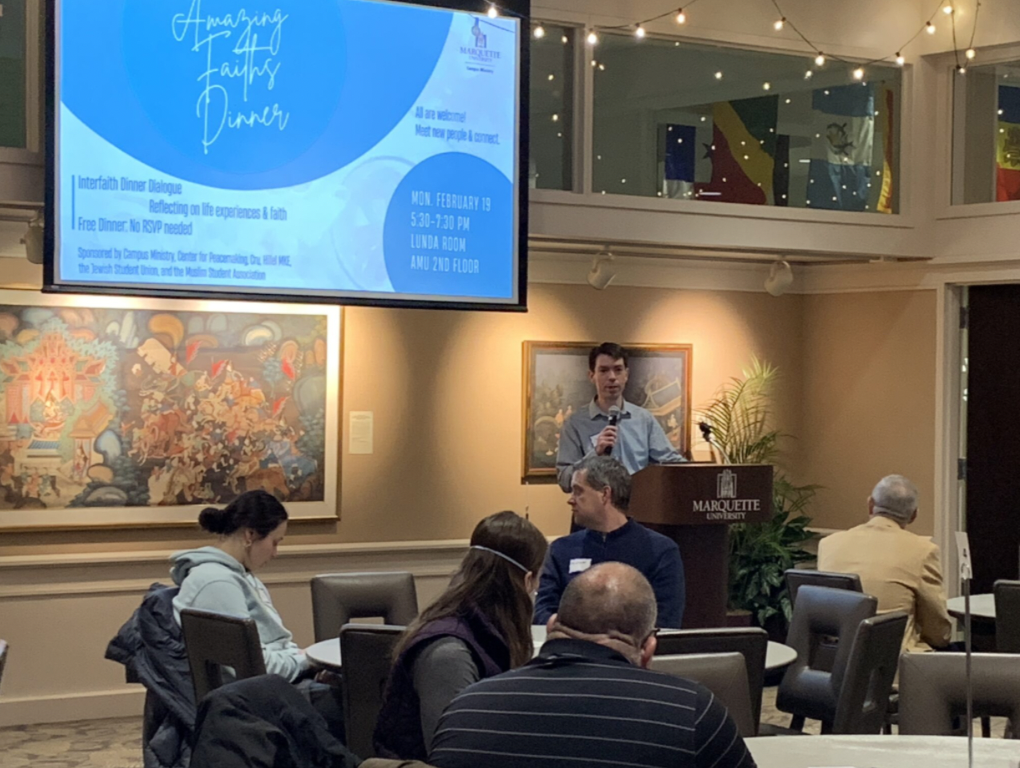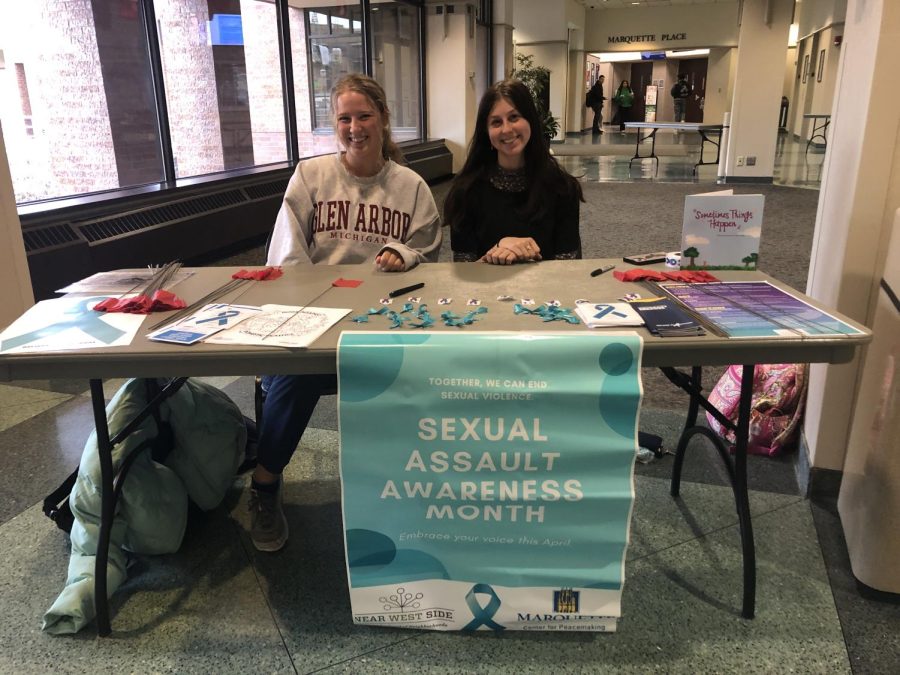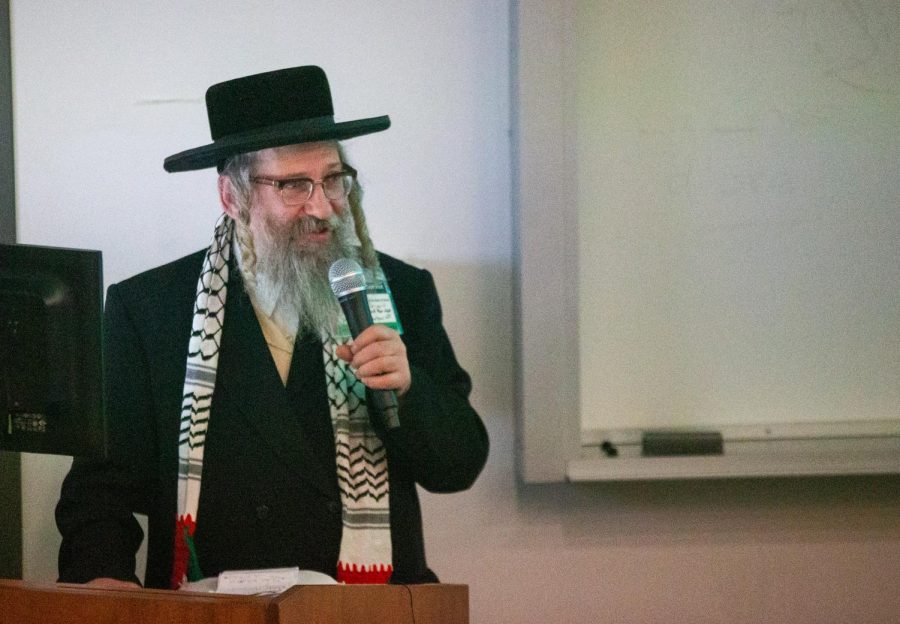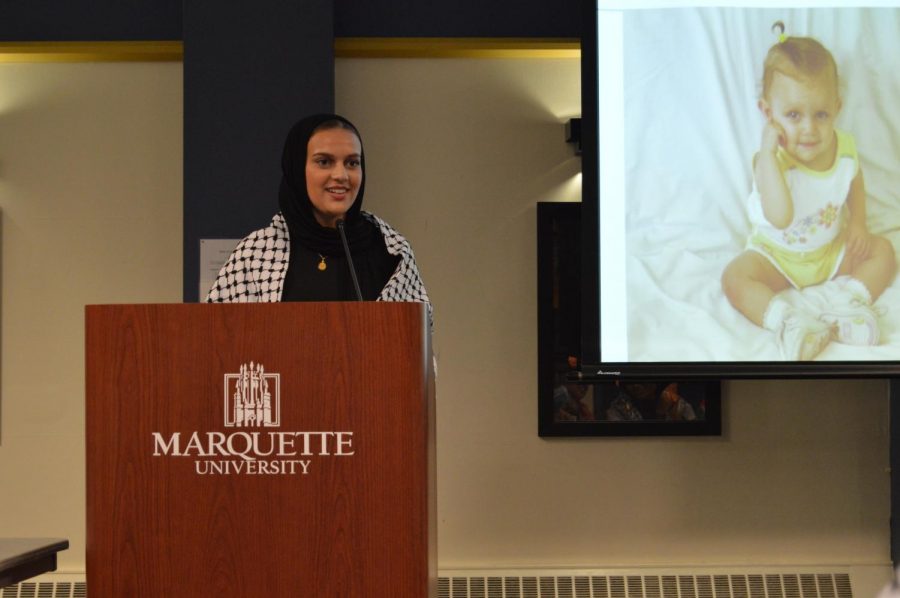 For many, ending the Israeli-Palestinian conflict may seem impossible. For Mubarak Awad, it’s an achievable goal, dependent on the efforts of young people.
For many, ending the Israeli-Palestinian conflict may seem impossible. For Mubarak Awad, it’s an achievable goal, dependent on the efforts of young people.
Awad, a psychologist and professor at American University in Washington, D.C., encouraged students to end conflicts all over the world during his speech Tuesday night at the Alumni Memorial Union.
The event, part of the ongoing Frankel Israel-Palestine Series, was sponsored by the Center for Peacemaking and the College of Arts & Sciences.
“Young people can make a difference in their communities and neighborhoods through non-violence,” Awad said.
He encouraged students to take action when they see violent conflict on television and to not just brush it off. He suggested spreading the news via Facebook and Twitter or even writing the president.
“When you watch it and see it, it becomes your business,” Awad said.
Awad’s father was killed in the conflict between Arabs and Jews when he was five years old. This inspired him to study non-violence, specifically the movements of Mahatma Gandhi and Martin Luther King Jr., according to a handout given at the event.
Awad, a Greek Orthodox Christian, moved to the U.S. in 1969 to study. He eventually returned to Palestine and co-founded the Center for the Study of Nonviolence.
The organization worked to shift Arab perceptions about violence.
“Arabs and Palestinians are not a violent people,” Awad said. “They begin to think they are violent because people say they are violent.”
He continued educating people outside of the center as well. Additionally, he told Palestinians to boycott Israeli products.
He was deported from Israel in 1988 and has been teaching American students about the conflict for the past 15 years.
“I want students to know that things are not as bad as they seem and that it is better that we continue the negotiations,” Awad said.
Attendee, Patrick Schoen, a junior in the College of Arts & Sciences, said in an e-mail that he liked the unique perspective Awad gave on the conflict in the Middle East.
“What I took away from the speech tonight is that even in the midst of the most difficult circumstances there are always alternative ways to solve your problems in a nonviolent way,” Schoen said.
Patrick Kennelly, associate director for the Center for Peacemaking, said it is important we educate ourselves through learning from practitioners of nonviolence.
“I’m inspired by the number of Marquette students committed to non-violent peacemaking, who are studying the conflict and working for co-existence among these great peoples,” said Kennelly.
Jessica Gagnon, a junior in the College of Health Sciences, said it is important to have speakers like this on campus because it brings awareness to the issue.
“As students, we don’t pay much attention to the news, so it is good to bring in people to get their perspective and hear their side of the story,” she said.
“We are aware of the conflict, but we don’t feel it pertains to us,” Gagnon said. “Attending speakers like this generates curiosity and inspires them to go and look up more information about the situation.”






